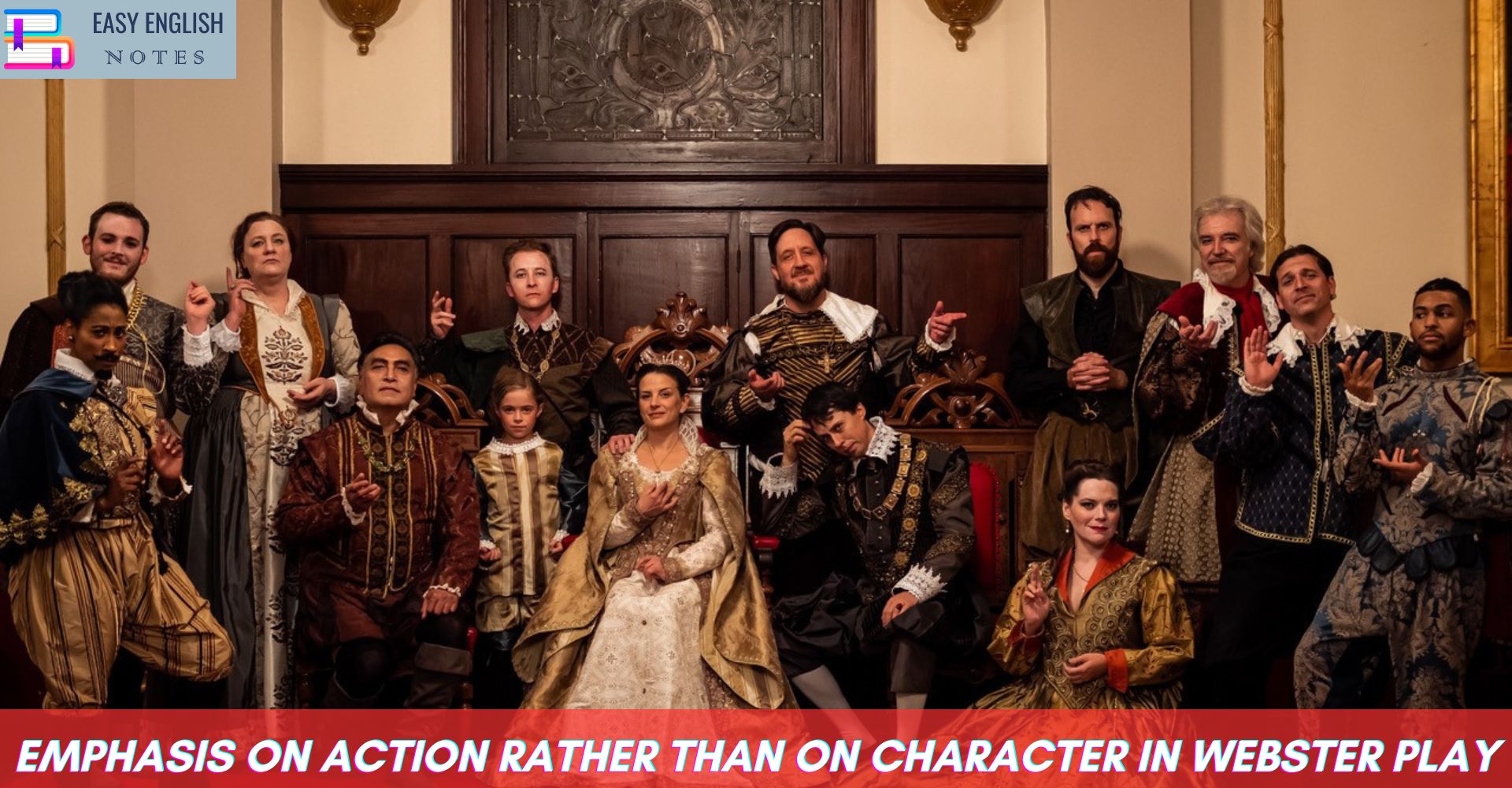The result is that the people in his tragedies become representative rather than individual and are viewed in terms of their outward aspects rather than their inner natures. Once their fundamental identities are established their course of action, rebellious, oppressive, or merely yielding, becomes more important than their motives. It is the fight, not the character of the fighter, that reveals most about the tragic structure of the world. For this reason although the Duchess is undeniably an individual and suffers martyrdom because she insists on remaining an individual, she does not possess the inner reality of the Shakespearean tragic hero.
Webster’s concentration on the outer aspects of his people is further demonstrated by an analysis of the technical means which he used to depict character. In Shakespearean tragedy, the inner being of a tragic hero is revealed through soliloquy, through individuality of behaviour, and through gradual exploration of the motives for action. An analysis of the kind of revelation which Webster makes by these means will emphasize the essentially different intentions of the two dramatists. Far from serving to reveal inner spiritual reality, the Websterian soliloquy is used only to assist the development of plot by clarifying certain obsurities. Thus in the present play Webster gives Bosola two extended soliloquies on the subject of his treachery. Immediately after the death of the Duchess he cries out,
Oh sacred Innocence, that sweetly sleeps
On turtles’ feathers: whilst guilty conscience
Is a black Register, Wherein is writ
All our good deads, and bad: a perspective
That shows us hell; that we cannot be suffer’d
To do good when we have a mind to it!
This is manly sorrow.
Also Read :
- Compare Hamlet with Macbeth, Othello and other Tragedies
- A Short Note On The Use Of Imagery In Shakespeare’s Sonnets
- Prologue to Canterbury Tales – (Short Ques & Ans)
This soliloquy is certainly not a probing into spiritual depth or an insight into spiritual struggle. “It states, rather, the result of a struggle which the audience is not permitted to see. It is thus the clarification of outer action : Bosola weeps and tells the audience of his guilty conscience. The audience is thereby informed how he feels about the death of the Duchess. Then he resolves on a new courses of action. The soliloquy informs the audience that such a resolve has been formed, and prepares them for events to follow.”
Similarly in his solioquy at the end of Act V, scene ii, Bosola meditates on the Cardinal’s false sense of security and informs the audience that he will protect Antonio and perhaps join him in taking revenge on the Cardinal. Again this is a statement of resolve. Only at the end of the passage is there even the suggestion of an inner struggle:
Still methinks the Duchess
Haunts me there, there… its nothing but my melancholy
O Penitence, let me truly taste thy cup,
That throws men down only to raise them up.
PLEASE HELP ME TO REACH 1000 SUBSCRIBER ON MY COOKING YT CHANNEL (CLICK HERE)











